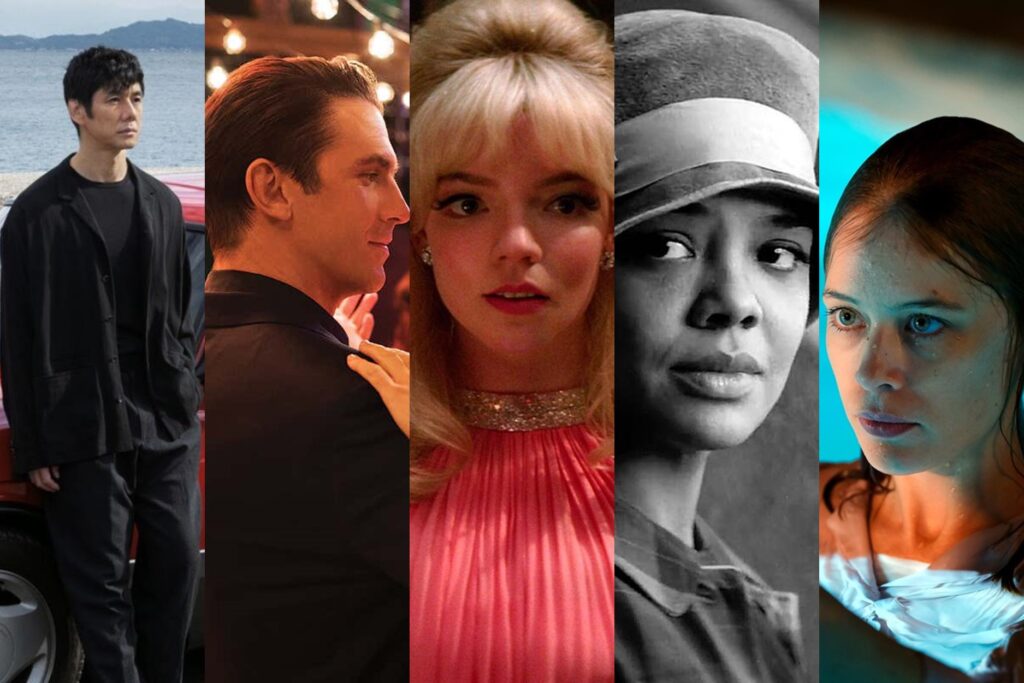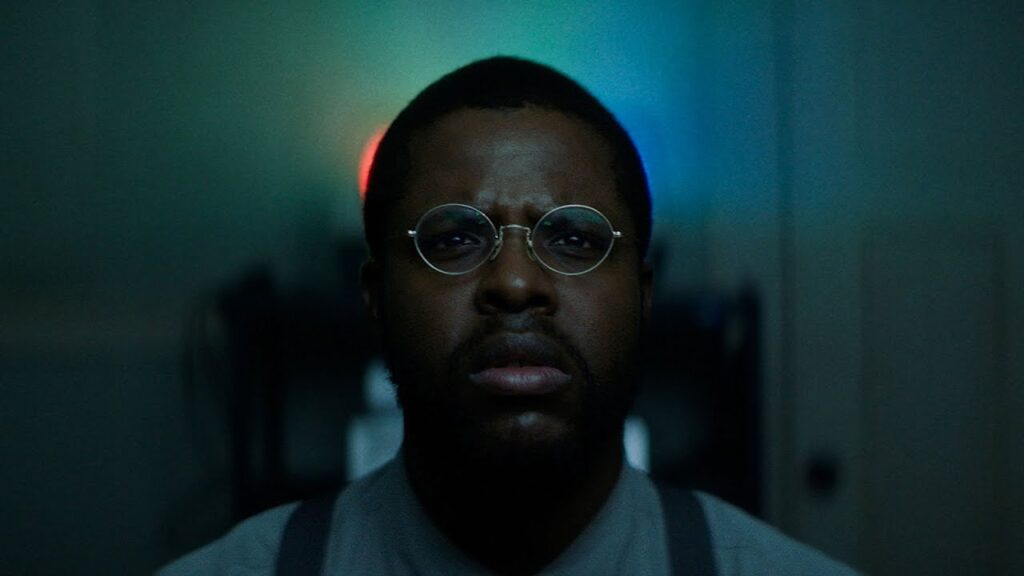
Have the movies finally come back? Or did they never leave? Or maybe my outlook is too rosy; survey any random flock of experts, and you’ll likely be met with an alternative, despairing answer. The state of the motion-picture industry is in constant motion, requiring perpetual reassessment and funereal lamentation. You’ve heard all of these eulogies before: Movies for adults are dead. Disney has monopolized the box office. Streaming is cannibalizing theaters. Superheroes are the only remaining genre. Martin Scorsese lost.
All of these exaggerated appraisals of modern movie-going may well carry an element of truth. (Scorsese, after releasing his last film on Netflix, has changed horses and will distribute his new picture via… Apple.) And yet, as I did last year (and last week), I again find myself resisting the notion that our classical understanding of cinema—of anticipating, watching, and arguing about film—is in mortal peril. Sure, certain trends—in particular the box-office supremacy of the superhero genre at the expense of, well, virtually everything else—are alarming. But while audiences may no longer be piling into theaters with the same multi-pronged hunger, good movies just keep getting made, and you have ample opportunity to watch them. All that’s required of you is artistic curiosity. (Well, and the means to access the ever-expanding buffet of streaming services.)
One positive consequence of the streaming boom is improved access to foreign titles. Cinema remains an emphatically global art form, and 2021 provided a diverse array of intriguing pictures from countless countries: Paul Verhoeven interrogated the hypocrisy of the Catholic Church in the French-Italian hybrid Benedetta, Pedro Almodóvar excavated Spain’s national trauma both literally and metaphorically in Parallel Mothers, and Mohammad Rasoulof wrestled with Iran’s criminal justice system in There Is No Evil (to name just three).
At home, meanwhile, American independent cinema remained a vibrant realm of intrigue and possibility, from the jagged Twitter-inspired thrills of Zola to the fraught marital drama of The Killing of Two Lovers to the tender surrogate dramedy of Together Together. Auteurs like Steven Soderbergh (No Sudden Move), M. Night Shyamalan (Old), and Lana Wachowski (The Matrix Resurrections) continued to emblazon smoothly crafted productions with their own distinctive personality. And even if superhero superiority is dispiriting in the abstract, several of this year’s installments, like Black Widow and The Suicide Squad, were pretty damn good on their own merits.
That none of those films appears on the ensuing list is a testament to the richness of 2021’s cinematic slate. Even if the theatrical experience is on life support, the movies themselves remain defiantly alive.
Here are MovieManifesto’s picks for the 20 best movies of 2021:

Honorable mention (i.e., the next 10): Benedetta, Encanto, The Last Duel, No Sudden Move, Old, Petite Maman, A Quiet Place: Part II, The Suicide Squad, Violation, Zola.
20. A Hero. That Asghar Farhadi is currently on trial for allegedly stealing the plot of A Hero from a former student is undeniably dispiriting. It also feels strangely of a piece with the film itself, a bleak societal portrait which chronicles, with vast sympathy and unsparing honesty, the rippling consequences of deception. (Streaming on Amazon Prime.)
19. Luca. To label this adroit coming-of-age story as “minor Pixar” is to diminish its winsome charms—its relaxed pacing, its intimate scale, its tonal and visual warmth. The opening act is magnificent in its youthful joie de vivre, while the sting of a late betrayal illuminates just how well-defined the shape-shifting characters really are. (Full review here; streaming on Disney+.)
18. I’m Your Man. What is love? This perceptive romantic comedy, about a prickly researcher (Maren Eggert) who’s recruited to evaluate an unnervingly perfect android (Dan Stevens), attempts to answer that question with uncommon rigor, which makes its fleeting moments of true romance all the more powerful. (Streaming on Hulu.)
17. Saint Maud. Rose Glass’ debut feature is an exhilarating genre exercise, announcing the arrival of a director in full command of cinematic craft. It is also a haunting and sad depiction of a ravaged soul, played by Morfydd Clark with terrifying intensity and devastating vulnerability. She’ll break your heart, when she doesn’t have you covering your eyes. (Longer review here; streaming on Paramount+.)
16. The Worst Person in the World. Joachim Trier’s acute, tender character study unfolds with visual whimsy and narrative imagination, turning one woman’s ongoing journey of self-discovery into a thrilling episodic adventure. As the titular fiend (though the title is actually spoken in reference to someone else), Renate Reinsve is fearlessly unsympathetic and utterly luminous.
15. The Card Counter. Paul Schrader’s silky technique belies a politically combustible storyline that accumulates momentum with persistent, disturbing urgency. Delivering his greatest performance since Ex Machina (or, for small-screen fans, Show Me a Hero), Oscar Isaac reminds us of the sheer force of his talent, burrowing into his character with pure, lethal purpose. (Longer review here.)
14. Quo Vadis, Aida? A ripe candidate for misery porn, Jasmila Žbanić’s searing study of Balkan genocide evades that trap through its impeccable detail and ruthlessly narrow focus. As a translator desperate to shield her family from harm, Jasna Đuričić resists histrionics in favor of sharp intelligence and clenched agony. (Streaming on Hulu.)
13. In the Heights. The movie musical never died, but it still feels thrillingly reborn in Jon M. Chu’s virtuosic adaptation of Lin-Manuel Miranda’s first Broadway hit. Anthony Ramos anchors a sturdy and hungry cast, while Chu’s versatile staging of the snappy numbers—most notably a buoyant, sun-baked trip to a Manhattan pool—sings with creativity and vitality. (Full review here; streaming on HBO Max.)
12. Passing. In addition to providing arguably the performance of the year, Rebecca Hall made room for her searching directorial debut, a smart and provocative study of American race relations whose big-picture inquiries never obscure its sharply drawn characters. Ruth Negga and André Holland are both very good, but it’s Tessa Thompson who makes the greatest impression, navigating a slippery balance of envy, resentment, and desire. (Streaming on Netflix.)
11. Last Night in Soho. Maybe the most imperfect movie on this list, Edgar Wright’s time-hopping horror-thriller hybrid is also perhaps the most consistently dazzling. As two women ensnared in a web of misogyny and brutality, Thomasin McKenzie and Anya Taylor-Joy are ideally complementary (and oppositional), while Wright’s visual style is bracing in its flair and dexterity. (Full review here.)
10. Drive My Car. A potent and stirring study of grief and acceptance, Ryûsuke Hamaguchi’s sweeping, soulful drama is also a rewarding exploration of the artistic process. Simple scenes of actors auditioning and rehearsing develop their own immersive power, their impact heightened by Hidetoshi Nishijima’s rich, furiously controlled performance. (Streaming on HBO Max.)
9. Titane. Julia Ducournau is a ruthless filmmaker, wielding her camera with inexorable momentum and pitiless force. She is also curiously empathetic, and the great surprise of this vivid, high-octane melodrama is its abiding sweetness. Newcomer Agathe Rousselle fearlessly holds the center, while the cagey veteran Vincent Lindon sneaks in from the margins and steals away with your heart. (Full review here; streaming on Hulu.)
8. Red Rocket. Sean Baker’s depiction of a shameless man’s eager recruitment of a young woman—a ghoulish process of seduction, manipulation, predation—is deeply disturbing. It is also perversely (and pervertedly?) entertaining, with sharp dialogue and slick editing. Together, Simon Rex and Suzanna Son concoct the most queasily compelling relationship to grace screens in some time. (Full review here.)
7. Licorice Pizza. Shaggy, languid, and problematic, Paul Thomas Anderson’s luxuriant coming-of-age tale is also insightful, enveloping, and pure. Alana Haim radiates spiky charm, while Anderson’s ability to keep things on an even keel while fluidly shifting between styles—from love story to hangout comedy to action movie and back—remains remarkable. (Full review here.)
6. Nine Days. Though it owes an obvious debt to Hirokazu Kore-eda’s After Life, Edson Oda’s inspired drama possesses a wistful and decisive sensibility all its own, with a brilliant spit-and-glue style to match its provocative ideas. Winston Duke is extraordinary as a metaphysical middle-manager paralyzed by old wounds, while Oda’s bravura visual imagination dovetails gracefully with his restlessly inventive screenplay. (Streaming on Starz.)
5. Undine. Austere yet operatic, chilly yet heart-warming, Christian Petzold’s piercing melodrama combines exacting technique with oceans of raw feeling. It receives both from Paula Beer, whose performance as a scorned lover (and then lovestruck lecturer) undulates with intelligence, passion, and ferocity. Several underwater scenes, meanwhile, provide some of the most breathtaking images you’re likely to see. (Streaming on Hulu.)
4. Cyrano. In a year loaded with terrific musicals, Joe Wright’s scrupulous adaptation of Edmond Rostand’s classic tragedy is the most nakedly emotional, brimming with sorrow and longing. Peter Dinklage is so achingly sincere, it’s almost painful to watch, or it would be without the salve of Wright’s supple filmmaking, a sleek application of craft which makes every anguished note ring true. (Full review here.)
3. The Power of the Dog. The curdled danger of the American West has rarely felt so pervasive as in Jane Campion’s melancholy epic, which concocts a familiar universe of cowboys and indians—a sun-baked land of whiskey and rawhide—only to strip away the swaggering machismo and replace it with an entirely new kind of menace. Benedict Cumberbatch supplies perhaps the performance of his career as a sneering tyrant whose silver-tongued wit merely enhances his cruelty, and magnifies the pain lurking beneath the bravado. (Full review here; streaming on Netflix.)
2. The French Dispatch. What’s better than a Wes Anderson movie? How about three Wes Anderson movies, each with their own distinctive style yet each still exhibiting that quixotic symmetrical precision? Anderson’s latest life-sized dollhouse is as magnificently meticulous as all of his surpassingly intricate constructions, but this one carries a soulfulness that elevates it far above pure technique. Adrien Brody and Benicio del Toro are best in show, but the entire (ridiculously talented) cast commits to the fastidious vision of their creator, and what a glorious world they make together. (Longer review here; streaming on HBO Max.)
1. West Side Story. A remake that feels original. Old songs that sound new. Classic themes repackaged with a modern slant. Steven Spielberg’s wondrous resurrection of a 60-year-old landmark retains the basic structure of its predecessor, but its filmmaking is so urgent and dynamic, it operates less as a canny update than as a vital new cinematic touchstone. It also reminds us of just how prodigiously gifted its director is, and how, through the simple but undeniable force of that gift—the vibrant colors, the ingenious compositions, the perfectly calibrated mix of movement and stillness—he can turn movies into magic. (Full review here; streaming on Disney+ and HBO Max.)
Jeremy Beck is the editor-in-chief of MovieManifesto. He watches more movies and television than he probably should.
